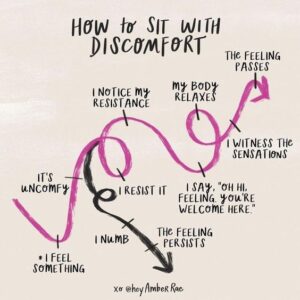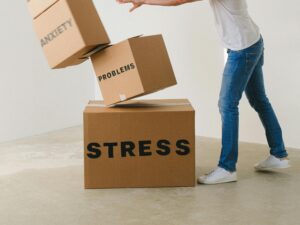The Idea of the Week
“I Want to Sleep But My Body Won’t Let Me”: Why Does This Happen? Even when we’re exhausted from the day, it can still be difficult to fall asleep when we finally climb into bed. In this 6-minute read, Verywell Mind shares 5 potential causes and solutions.
Did you know that autistic people commonly face sleep challenges? In this 28-minute video, Taylor from Mom on the Spectrum shares 5 common challenges that autistic people face and practical remedies to support your journey for deeper and more restful sleep. Below are the timestamps; click on one to jump to that section in the video.
- (1:33) Difficulty with transitions: starting the bedtime routine and transitioning from the winddown process to going to bed are challenging.
- (2:43) Autistic Inertia: when we’re doing something, it’s difficult to stop doing it, and if we’re not doing something, it’s difficult to start.
- Demand Avoidance: the bedtime routine has all kinds of demands that we have to again each time, e.g., brushing your teeth, putting pajamas on.
- (6:48) Sensory overwhelm: autistic people are more likely to be aware of the sensory information in their environment, so light brightness, the fabrics of pajamas and bedding, and the noise levels can become particularly overwhelming when going to bed.
- (11:32) Delayed processing/trouble turning off your mind: conversations and situations may take longer for autistic people to process but they may not process it fully at the moment. It may not be until they’re unwinding at bedtime that they are able to process the day’s conversations and situations fully.
- (13:51) Paradoxical reactions to sleep aids or activities. For some autistic people, sleep medications or relaxing activities may make them more energized rather than sleepy.
- (15:23) Sleep remedies
- (22:25) Tay from Mom on the Spectrum’s favorite sleep accessory!
Please note that while the video is focused on autism and sleep, you do not have to be autistic to suffer from sleep problems or to benefit from the suggestions in the video.
Practice of the Week
If you struggle with a racing mind when you try to sleep, Verywell Health shares 4 ways to Reduce Racing Thoughts at Night (a 7-minute read).
- Schedule “Worry Time.” Schedule time in your day to write out your stressors and create an action plan. This could take from 10 minutes to an hour; it’s however long you need and can fit into your day.
- Address Your Stressors. Break your stressors down into manageable chunks and identify the timeline and course of action. If you find yourself mulling over your “tomorrow’s to-dos” when you’re trying to sleep, take 5 minutes to write them down. Then affirm to yourself that you wrote your tasks down and you’ve accomplished all you could for today.
- Prepare for Sleep by disengaging from your work (remember, you’ve done all you could for the day and it is enough) and from social media. Reduce the amount of blue light from computer and TV screens, and spend at least 30 minutes unwinding and decompressing with relaxing activities before bedtime.
- If you still struggle with sleep, talk with your healthcare provider about additional treatment options.
Here are 11 more tips to improve your sleep hygiene (a 7-minute read). Plus, here are Tay’s practical remedies for sleep challenges from the earlier video.
- Body doubling: if you live with someone else, ask them to do bedtime routine activities with you, such as brushing your teeth together or starting to get ready for bed together.
- Engage in self-awareness and mindfulness to identify what the problem is.
- Break down the task into smaller steps, particularly for the first tasks in the bedtime routine until you get the inertia rolling.
- Utilize technology to motivate your bedtime routine. For example, use the “focus” feature on your phone to mute or filter notifications, and set reminders on your phone or through Alexa to begin your bedtime routine.
- Drink plenty of water and stay active throughout the day to help your digestive processes.
- Reduce sensory input as much as possible. Practice bedtime yoga, relaxing stretches, or stim to help with sensory overwhelm and delayed processing.
- Move gently and slowly.
- Journaling.
- Communicate intentionally with your friends or partners. Connect with each other about your day.
What activities will you incorporate into your bedtime routine? Let us know on our Instagram or Facebook page!
News of the Week
Psychedelic Integration Facilitator Training
Are you looking to offer a growing list of plant medicines to clients and others? Want to support clients through decision-making about out-of-country psychedelic retreats or integrate past psychedelic experiences?
Join John McIlwain in this workshop training, you’ll learn:
- How to prepare yourself for holding space;
- The history of plant medicines;
- The ethics of plant medicine work;
- How to create a safe and effective space;
- How to work with the medicine;
- How to screen possible participants and the ground rules for participants;
- How to hold the ceremony space and handle extreme reactions;
- How to integrate the experiences afterward.
The workshop will be held at the Breathing Space Studio in Erieville, NY on
Thursday, June 8th from 5 to 8pm
Friday and Saturday June 9th and 10th from 10 to 5pm.
New Meditation Session!
Mondays 7:30-8:30pm online
$50 for 10 sessions
We are offering another guided meditation! Perfect for beginners! Join us for a guided meditation and journal session.
What is Ketamine-Assisted Experiential Psychotherapy?
Want to learn more about Ketamine-Assisted Psychotherapy? Check out the blog!
We’re hiring!
Are you a NY Licenced Mental Health Counselor? Or, do you know anyone who is? Send them our way because we’re hiring!
Would you enjoy working with a collaborative team of enthusiastic clinicians?
Are you curious about new therapy modalities?
Do you want control over your schedule so your life can be balanced?
Are you looking for opportunities to expand your skills by leading groups, facilitating workshops, or supervising interns/Limited Permits?
YES? Then check out our website for more details!
The Thought of the Week

Wishing you a peaceful week!






